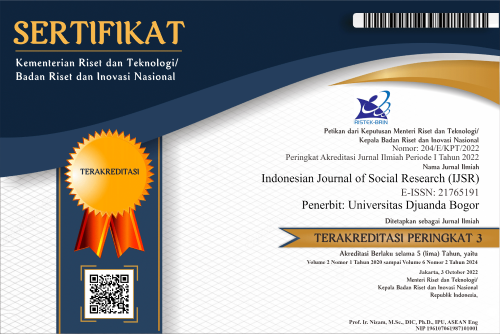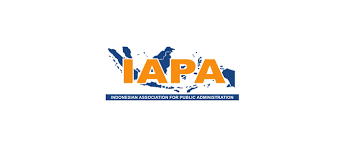The Cultural Values Domino Effect: How the Ball Rolls in Influencing University Students' Intentions to Take the Accounting Path
Abstract
Students' cultural values can significantly impact their decision to enroll in accounting courses. Some students could be discouraged from studying accounting because of a poor view of the field stemming from cultural expectations. A lack of solid cultural values (Aesthetic, social, symbolic, spiritual, and educational) can negatively affect students aspiring to become accountants. In this context, our study sets out to ascertain how cultural values affect college students' decisions to pursue careers in accounting. With this aim, employing a quantitative technique and a survey questionnaire was appropriate to gather data from Omani undergraduate students. SEM-PLS, version 4.0 software, was used to analyze data. The outcome of our research was mainly the confirmation that cultural values—both symbolic and aesthetic—significantly impact students' decisions to pursue a career in accounting. However, there was no discernible influence of other cultural values (such as social, spiritual, and educational) on the decision to pursue a career in accounting. An accounting career ought to uphold Islamic ideals and beliefs. The capacity to exhibit Islamic beliefs and practices, which students believe is crucial while choosing a career in accounting. The research conclusions of this can help managers in the accounting industry make informed hiring decisions. They can adapt their recruitment efforts to attract talented people by comprehending the variables that affect students' decisions to pursue careers in accounting.
References
Babchuk, W. A. (2017). Book review: Qualitative research: A guide to design and implementation, by SB Merriam and EJ Tisdell.
Baliyan, P. S., & Baliyan, S. P. (2016). Employment preference of undergraduate accounting students in Botswana: Perceptional analysis of practitioners and students. International Journal of Business and Management, 11(12), 271–282. https://doi.org/10.5539/ijbm.v11n12p271
Barker, D., Nyberg, G., & Larsson, H. (2020). Joy, fear, and resignation: Investigating emotions in physical education using a symbolic interactionist approach. Sport, Education and Society, 25(8), 872–888. https://doi.org/10.1080/13573322.2019.1672148
Buliva, N. (2020). Technological Tribal Territories: How Culture Influences Learning Beyond Content in Educational Technologies: A Narrative Review of Literature. Educational Technology Beyond Content: A New Focus for Learning, 119–126. https://doi.org/10.1007/978-3-030-37254-5_10
Creswell, J. W., & Poth, C. N. (2016). Qualitative inquiry and research design: Choosing among five approaches. Sage publications.
Czerny, M. (2021). Religion as a Source of Islamic Ethics and its Impact on the Islamic Accounting System. Acta Universitatis Lodziensis. Folia Oeconomica, 4(355), 28–46. https://doi.org/10.18778/0208-6018.355.02
Dalci, İ., & Özyapici, H. (2018). Cultural values and students’ intentions of choosing accounting career. Journal of Financial Reporting and Accounting, 16(1), 179–196. https://doi.org/10.1108/JFRA-09-2016-0072
DeFillippi, R., Grabher, G., & Jones, C. (2007). Introduction to paradoxes of creativity: Managerial and organizational challenges in the cultural economy. Journal of Organizational Behavior: The International Journal of Industrial, Occupational and Organizational Psychology and Behavior, 28(5), 511–521. https://doi.org/10.1002/job.466
Demuyakor, J. (2020). Opportunities and challenges of digital media: A comprehensive literature review of Ghana. Available at SSRN 3576045. . http://dx.doi.org/10.2139/ssrn.3576045
Fricker, M. D. (2016). Quantitative redox imaging software. Antioxidants & Redox Signaling, 24(13), 752–762. https://doi.org/10.1089/ars.2015.6390
Haynes, K. (2023). Reflexivity and academic identity in accounting: intersubjective reflexive identity work as a feminist academic. Accounting, Auditing & Accountability Journal. https://doi.org/10.1108/AAAJ-10-2022-6099
Horne, E., Loftus, S., McCoy, S. S., & Winn, A. M. (2023). Attracting the Next Generation of Accountants: The Joint Impact of Sustainability Emphasis and Social Value Orientation on Accounting Career Perceptions. AUDITING: A Journal of Practice & Theory, 1–19. https://doi.org/10.2308/AJPT-2022-107
Ji, G., Wong, G., Taylor, D., & Mihret, D. (2022). Motivational appetites, cultural orientations and accounting students’ learning. Accounting & Finance, 62(2), 2283–2312. https://doi.org/10.1111/acfi.12865
Kholid, M. N., Tumewang, Y. K., & Salsabilla, S. (2020). Understanding students’ choice of becoming certified sharia accountant in Indonesia. The Journal of Asian Finance, Economics and Business, 7(10), 219–230. https://doi.org/10.13106/jafeb.2020.vol7.n10.219
Komori, N. (2008). Towards the feminization of accounting practice: Lessons from the experiences of Japanese women in the accounting profession. Accounting, Auditing & Accountability Journal, 21(4), 507–538. https://doi.org/10.1108/09513570810872905
Kuila, S., Dhanda, N., Joardar, S., Neogy, S., & Kuila, J. (2019). A generic survey on medical big data analysis using internet of things. 265–276. . https://doi.org/10.1007/978-981-13-1580-0_26
Madhar, M. A. (2022). Understanding the Intentions of Accounting Students to Pursue Career as a Professional Accountant (Special Reference to Students of Business Administration Program, Utas/CAS, Sultanate of Oman). https://doi.org/10.2139/ssrn.4306867
Mai, K. T., & Hoque, Z. (2023). Self, ethics, morality and accountability: A case of a public university. Accounting, Auditing & Accountability Journal, 36(1), 323–347. https://doi.org/10.1108/AAAJ-04-2020-4504
Maksymenko, N., Bei, I., Khimchuk, L., & Vovchok, Y. (2020). Formation of communicative culture of students by means of project teaching in higher educational establishments. Journal of History Culture and Art Research, 9(3), 267–276. https://doi.org/10.7596/taksad.v9i3.2719
Matus, N., Rusu, C., & Botella, F. (2023). Towards Well-Being and Inclusion in the Educational System: A Preliminary Methodology for Evaluating Student eXperience Considering Cultural Factors. 103–115. https://doi.org/10.1007/978-3-031-35927-9_8
Ogundimu, E. O., Altman, D. G., & Collins, G. S. (2016). Adequate sample size for developing prediction models is not simply related to events per variable. Journal of Clinical Epidemiology, 76, 175–182. . https://doi.org/10.1016/j.jclinepi.2016.02.031
Pinheiro, M. M., & Costa, A. J. (2020). Accounting ethics education: Teaching virtues and values. Routledge.
Rkein, A., & Rkein, H. I. (2018). Accounting Career Choice Theories: Is Culture an Impediment? Archives of Business Research, 6(3). https://doi.org/10.14738/abr.63.4208
Sarstedt, M., Ringle, C. M., & Hair, J. F. (2021). Partial least squares structural equation modeling. In Handbook of market research (pp. 587–632). Springer. https://doi.org/10.1007/978-3-319-57413-4_15
Szeto, E. (2022). Social cohesion for societal prosperity: Teachers’ inclusive development of career education for all students’ growth in Hong Kong secondary schools. Teaching and Teacher Education, 115, 103722. https://doi.org/10.1016/j.tate.2022.103722
Ulvik, M. (2020). Promoting aesthetical values to education. 5, 34. https://doi.org/10.3389/feduc.2020.00034.
Van Leeuwen, R., Attard, J., Ross, L., Boughey, A., Giske, T., Kleiven, T., & McSherry, W. (2021). The development of a consensus‐based spiritual care education standard for undergraduate nursing and midwifery students: An educational mixed methods study. Journal of Advanced Nursing, 77(2), 973–986. https://doi.org/10.1111/jan.14613
Wang, G., & Hu, W. (2021). Peer relationships and college students’ cooperative tendencies: Roles of interpersonal trust and social value orientation. Frontiers in Psychology, 12, 656412. . https://doi.org/10.3389/fpsyg.2021.656412
Wang, Z., Yuan, R., Liu, M. J., & Luo, J. (2022). Luxury symbolism, self-congruity, self-affirmation and luxury consumption behavior: A comparison study of China and the US. International Marketing Review, 39(2), 166–206. https://doi.org/10.1108/IMR-02-2021-0090
Warren, S., & Parker, L. (2009). Bean counters or bright young things? Towards the visual study of identity construction among professional accountants. Qualitative Research in Accounting & Management, 6(4), 205–223. https://doi.org/10.1108/11766090910989491
Willaby, H. W., Costa, D. S., Burns, B. D., MacCann, C., & Roberts, R. D. (2015). Testing complex models with small sample sizes: A historical overview and empirical demonstration of what partial least squares (PLS) can offer differential psychology. Personality and Individual Differences, 84, 73–78. https://doi.org/10.1016/j.paid.2014.09.008
Copyright (c) 2024 Indonesian Journal of Social Research (IJSR)

This work is licensed under a Creative Commons Attribution-ShareAlike 4.0 International License.
The Authors submitting a manuscript do so on the understanding that if accepted for publication, copyright publishing of the article shall be assigned/transferred to Indonesian Journal of Social Research (IJSR) Universitas Djuanda as Publisher of the journal. Upon acceptance of an article, authors will be asked to complete a 'Copyright Transfer Agreement'. An e-mail will be sent to the corresponding author confirming receipt of the manuscript together with a 'Copyright Transfer Agreement' form by online version of this agreement.
Indonesian Journal of Social Research (IJSR) Universitas Djuanda, the Editors and the Editorial Board make every effort to ensure that no wrong or misleading data, opinions or statements be published in the journal. In any way, the contents of the articles and advertisements published in the Indonesian Journal of Social Research (IJSR) Universitas Djuanda are sole and exclusive responsibility of their respective authors and advertisers.
Remember, even though we ask for a transfer of copyright, our journal authors retain (or are granted back) significant scholarly rights as mention before.
The Copyright Transfer Agreement (CTA) Form can be downloaded here: Copyright Transfer Agreement-IJSR 2020
The copyright form should be signed electronically and send to the Editorial Office e-mail below:
Dr. Rasmitadila, M.Pd (Editor-in-Chief)
Universitas Djuanda
Jl. Tol Jagorawi No.1, Ciawi, Kec. Ciawi, Bogor, Jawa Barat 16720
Website: http://journal.unida.ac.id/index.php/IJSR/index
Email: ijsr@unida.ac.id





4.png)



